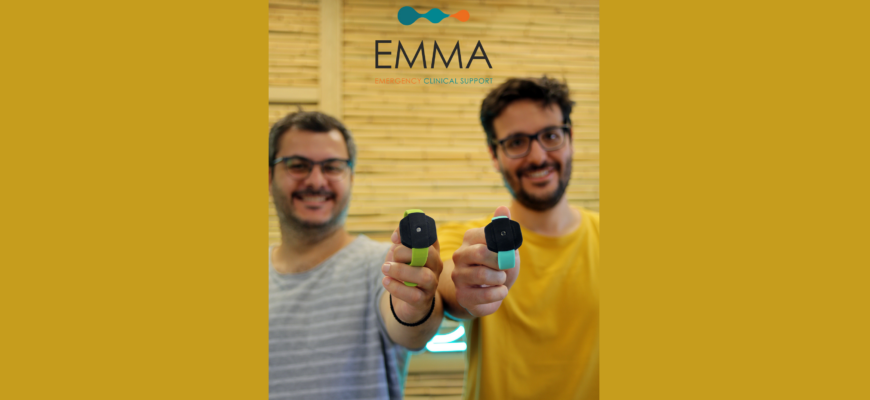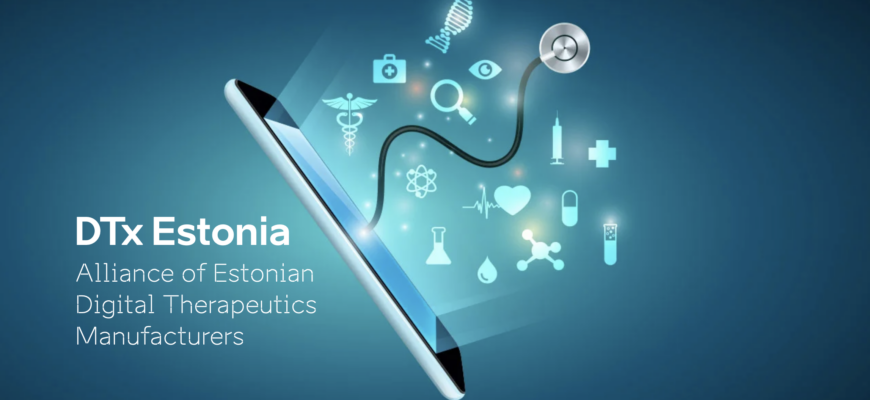- 08/08/2022
- by Health Founders
We sat down with the founders of EMMA – Emergency Clinical Support, first team we’re introducing to you from our Health Founders Accelerator Program 2022 – 3rd batch, to share with you the details of a burning problem this team is tackling as well as to share their vision and motivation behind their incredible work.
Meet the co-founders of EMMA – Emergency Clinical Support – Alexis Fourlis and Antonis Billis!
What is the problem you are solving?
Antonis: Incoming patients to Emergency Departments are growing constantly in the Western world. In England there were 25 million patients who visited the EDs during 2019, which is an increase of 13% in just six years, while the increase between 1998 to 2012 was 47%. Furthermore, in countries where healthcare systems lack resources, the increase is even higher. For example, in Greece there were more than 7 million incoming Emergency Department patients in 2016, an increase of 40% since 2009. This leads to a dramatic increase in the workload of doctors and patients’ waiting time resulting in burnout, medical errors, increased length of stay and fatal incidents. Life inside Emergency Departments is not easy, and it is getting more and more difficult. 50% of ER physicians experienced burnout at least once in their career, while latest statistics in the NHS show that 3 in 5 ER staff have experienced burnout.
Alexis: Recent research proves that waiting at the ER is a ticking bomb for patient’s health condition, but also to ER personnel mental health. It is not a random fact that ER physicians have the highest rate of early retirement in the NHS. Based on NHS statistics, emergency medicine has a high attrition rate from doctors in training, high early retirement rates for experienced clinicians and significant reliance on temporary locum clinical staff – burnout is the main reason for that. As direct effect, a recent report by the Association of American Medical colleges predicts a shortage of 124,000 physicians by 2034. Based on this, burnout is an undeniable fact and it costs a lot. Burnout among doctors is costing the U.S. health-care system an estimated $4.6 billion a year in billings because of reduced working hours, and expenses associated with finding and hiring replacements, according to a first-time analysis of the overall economic impact of the problem[1], before Covid-19 pandemic.
[1] Shasha Han et all, Estimating the Attributable Cost of Physician Burnout in the United States, Medicine and Public Issues, 4 June 2019, https://doi.org/10.7326/M18-1422
Why is now the right time to solve this problem?
Alexis: Burnout at EDs was a reality in most hospitals creating a stressful working environment before the pandemic, but during the pandemic the problem raised in the surface and made things even worse. During the Covid era, burnout skyrocketed – the images in TV from Italy, NY and everywhere around the globe are still vibrant to everyone’s memory, so now is the time to act.
Antonis: EU has put in place the EU4Health programme to help build more resilient healthcare systems and staff to better cope with the surge of new crises.
How are you different from your competitors?
Alexis: EMMA is a Clinical Decision Support System with the aim to assist ER personnel more effectively triage and monitor incoming patients to the EDs. EMMA exploits wearable biosensors data to predict patients’ outcomes continuously, not just once like our competitors, and timely notifications are sent to the mobile app of ER personnel for further investigation. To this end, EMMA allows doctors to focus on one incident per time and work with peace of mind while EMMA watches their backs. Moreover, EMMA creates a decision support mechanism that makes them feel safe, avoid multitasking and minimizes burnout having positive impact on healthcare services and alleviates the respective economic burden.
Antonis: EMMA is a useful AI medical tool which:
- Monitors patients’ vital signs and indoor position through wrist-wearable biosensors
- Detects real-time health deterioration and assigns priorities
- Offers probabilistic insights beyond medical data, focusing on patient outcomes and hospital resources management
- Provides business intelligence insights to the hospital’s management team regarding the influx and accommodation of patients in the ER
Specifically, EMMA creates a probabilistic framework to inform healthcare professionals on the prediction estimates (in the form of probabilities) of a patient to be admitted in the hospital or discharged and furthermore when hospitalized if there is a high chance to be admitted in the ICU. This patient stratification algorithm especially in medium-risk incidents, may save lives and result to better patient outcomes in the long run. In addition, the calculated estimation of the potential duration of hospitalization allows for more efficient hospital resource management.
Alexis: Τhe fact that our technology exploits edge computing establishes a significant advantage against current state-of-the-art solutions. It realizes a more feasible and sustainable business case, avoiding the huge costs, connection dependence and complexity that cloud infrastructures demand, while ensures data privacy, which is the biggest barrier when dealing with medical data.
Antonis: Finally, EMMA is a solution developed with and for ED personnel and healthcare decision makers. So, EMMA is co-designed with our users and future clients who identified the clinical need, were involved in the design and development processes and are actively testing it in real-life clinical context.
What is the recipe for a successful team?
Antonis: Share the same vision for improving lives of millions of people and make an impact to our society!
Alexis: Be patient, no personal feelings and work with nice people, who know how to work in a team.
What will be written in newspaper headlines about your company in 5 years?
Alexis: EMMA re-invented the way of delivering emergency cases’ triage and monitor at ERs.
Antonis: Technology-augmented care in the ERs has now become a reality thanks to the EMMA triage intelligent assistant.
So far, the prototype developments of EMMA succeeded to receive 635K EUR in research grants and their MVP is currently piloted in two EDs (including Covid-19 department) and in one of the clinic in University Hospitals in Greece.
To find out more about EMMA – Emergency Clinical Support: alexis.fourlis@emmatriage.com




